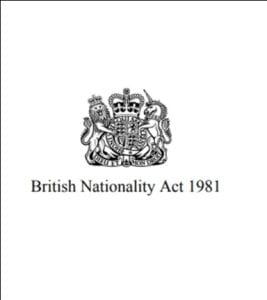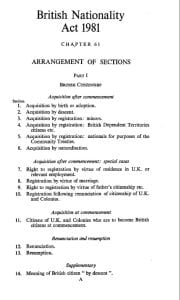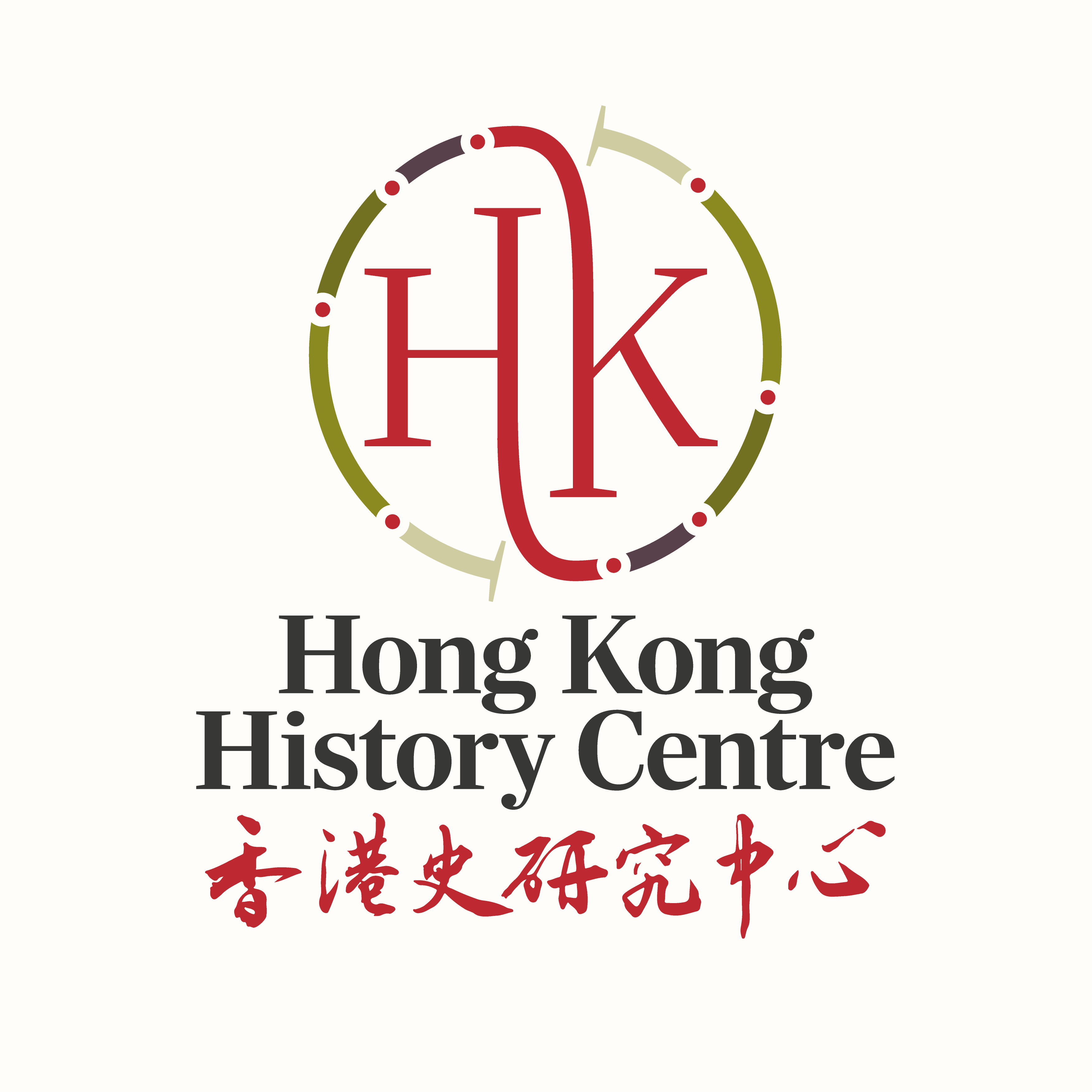Today we are introducing an article ‘Decolonising Britishness? The 1981 British Nationality Act and the Identity Crisis of Hong Kong Elites’ by Chi-kwan Mark, Royal Holloway.
The introduction and passage of the 1981 Nationality Act coincided with discussions on the future of Hong Kong’s sovereignty in 1997, which triggered an identity crisis among the Hong Kong elites. This article by Chi-kwan Mark is about the 1981 British Nationality Act through the prism of Hong Kong. It examines how the Act and subsequent amendments affected the connection between the United Kingdom and Hong Kong against the backdrop of the 1997 question.
On 30 October 1981, the British Nationality Act received Royal Assent. Bringing nationality law in line with immigration policy, the Act created three separate categories of citizenship, including ‘British Dependent Territories Citizen’ (BDTC) for existing British dependent territories such as Hong Kong. During the deliberations over the bill, the Unofficial Members of the Executive and Legislative Councils in Hong Kong played an important role in lobbying the Thatcher government to protect the status and rights of British subjects in Hong Kong. With the emergence of the 1997 question, the Unofficial Members feared that the United Kingdom was distancing itself from Hong Kong as a prelude to decolonisation. No sooner had the 1981 British Nationality Act come into effect than the Anglo-Chinese negotiations over Hong Kong’s future raised serious questions about the continuation of Hong Kong’s ‘Britishness’ after 1997. The Thatcher government was willing to make concessions on the nationality issue as long as they did not risk opening the floodgates to Hong Kong immigrants, who were deemed to have no close connection with the United Kingdom. A general fear of non-white immigration underpinned the 1981 British Nationality Act and Thatcher’s forging of an exclusive British identity.
The symbolism of “Britishness” held significant importance for the Unofficial Members alongside the practical benefits. They constructed a Hong Kong identity with British characteristics, being proud of British values and institutions while considering Hong Kong their home. Emigration from Hong Kong did increase, but the majority of Hong Kong Chinese stayed, valuing the “Britishness” that contributed to Hong Kong’s economic success and its status as a free and legally-based city. The Unofficial Members exerted pressure on the Thatcher government during negotiations with China to secure a detailed agreement that would preserve Hong Kong’s autonomy and way of life after 1997, reflecting their civic British identity against socialist China’s interference.
The Unofficial Members’ attachment to “Britishness” was primarily influenced by class and status rather than blood or race. Their identification with Britishness differed from the perspectives of ordinary Hong Kong residents, who seemed less interested in the legislative changes made in London. The majority of Hong Kong Chinese, unlike the highly educated elites, likely struggled to understand the complexities of terms like CUKC (Citizen of the United Kingdom and Colonies) and BDTC (British Dependent Territories Citizen). However, when negotiations over Hong Kong’s future began in 1982, most Hong Kong residents desired the continuation of British rule beyond 1997, even if they did not explicitly articulate a sense of “Britishness.”
引入和通過1981年國籍法時逢九七香港主權問題的討論,引發了香港精英的身份危機。麥志坤這篇文章以香港的視角去理解1981年英國國籍法,去審視這個法案及其後的修改如何在九七問題的背景下影響英國與香港之間的關係。
1981年10月30日,英國國籍法獲得御准。為使國籍法與移民政策一致,該法創建三個獨立的公民身份類別,其中包括現有英國附屬領土(如香港)的「英國屬土公民」(BDTC)。在討論法案的過程中,香港的行政和立法局的非官守議員在遊說戴卓爾政府保護香港英國臣民的地位和權利,發揮重要作用。隨著九七問題的出現,非官守議員擔心英國正在將自己與香港拉開距離,作為脫殖民化的前奏。1981年的英國國籍法生效後不久,中英就香港前途談判,引發了對香港九七後「英國特性」繼續存在的嚴重質疑。戴卓爾政府願意在國籍議題上讓步,只要不冒著打開香港移民大門的風險,因為這些移民被認為與英國沒有密切聯繫。對非白人移民的普遍恐懼是1981年的英國國籍法和戴卓爾建立排他性英國身份的基礎。
對於非官守議員來說,「英國特性」的象徵意義與實際利益同樣重要。他們建構了一個具有英國特色的香港身份,自豪於英國價值觀和制度,同時視香港為他們的家園。雖然港人往外移民有所增加,但大多數香港華人仍留在香港,珍視「英國特性」所貢獻的香港經濟成就和其作為一個自由和法治的城市。非官守議議員向正與中國談判香港未來的戴卓爾政府施壓,以期確保香港在1997年後的自治和生活方式,這體現了他們對英國公民身份的認同,藉此對抗社會主義中國的干預。
非官守議員對「英國特性」的認同主要受階級和地位影響,而非血統或種族。他們對英國特性的認同與普通香港居民的觀點不同,後者似乎對倫敦所做的立法變化不太感興趣。不像受高度教育的精英,大多數香港華人大概難以理解例如「英國及殖民地公民」(CUKC)和英屬屬土公民(BDTC)這樣的術語的複雜性。然而,當於1982年開始就香港的未來進行談判時,大多數香港居民希望英國繼續在1997年後管治,即使他們沒有明確表達對「英國特性」的感覺。
‘Decolonising Britishness? The 1981 British Nationality Act and the Identity Crisis of Hong Kong Elites’
https://doi.org/10.1080/03086534.2019.1638619




